Easy, low-, or no-cost actions you can take now
The Business Energy Toolkit: Quick Wins and Big Impact
By Connie Conductor
Picture this: a wholesale distribution company in the heart of Elkton, Maryland. Business is booming, orders are rolling in, customers are happy, and the team is growing. But with that growth comes rising utility costs, quietly cutting into hard-earned profits.
Looking for ways to cut costs without compromising quality or service, the owners explore a new path: energy efficiency. What starts with a simple lighting retrofit soon grows into a broader strategy—reducing energy waste, lowering operating costs, and reinvesting savings into equipment and employee development.
The payoff is both swift and lasting.

Energy Efficiency Pays Off
Reducing energy costs is one of the most effective ways to improve your bottom line. With the right mix of no-cost actions, smart operations, and strategic investments, the average commercial building can cut energy bills by up to 30%.
Whether you’re aiming for fast savings or long-term results, a well-equipped energy efficiency toolkit can help you move forward with clarity and confidence.
Higher-return investments with long-term payoff
Each section includes a toolkit in action
Real examples of how businesses like yours are turning strategy into savings.

Start with an Energy Audit
The first step to managing your energy is understanding where it’s going.
- Schedule a professional energy audit with Delmarva Power—we offer no-cost assessments to identify where energy is being wasted.
- Use audit findings to create a long-term energy plan that prioritizes equipment upgrades by cost, savings potential, and operational value.
Toolkit in Action
Toolkit in Action
Businesses across Maryland are taking advantage of Delmarva Power-supported energy assessments tailored to their building size. Small businesses that use an average of 100 kW of electricity or less per month are eligible for check-ups and product installations, and larger businesses can access incentives that significantly reduce equipment upgrade costs.


Bright Ideas for Better Lighting
Lighting is one of the simplest areas to address—and offers major return for minimal investment.
- Turn off lights in unoccupied areas.
- Use natural daylight whenever possible.
- Encourage staff to adopt lighting best practices.
- Install occupancy sensors in break rooms, restrooms, and storage areas.
- Replace outdated fixtures with LEDs, which use up to 90% less energy.
Toolkit in Action
Toolkit in Action
Cecil County Public Schools upgraded stadium lighting at two high schools by installing 48 high-efficiency LED fixtures, significantly reducing energy use and improving visibility. The project is saving the district over $31,000 annually.
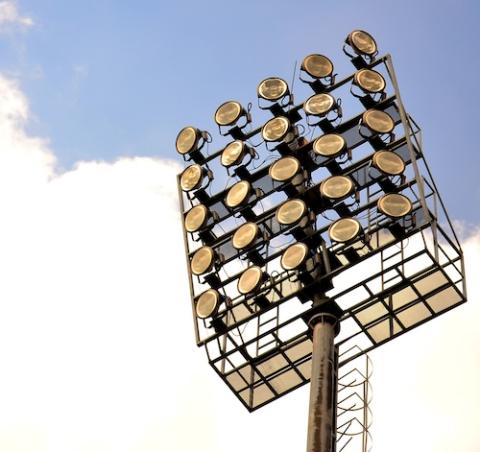

HVAC Hacks That Add Up
Your HVAC system is one of the biggest energy users—but small fixes and strategic upgrades can make a major difference.
- Adjust thermostats seasonally.
- Turn systems off an hour before closing.
- Seal doors and windows with weatherstripping.
- Use blinds to regulate temperature.
- Install programmable or smart thermostats.
- Schedule regular HVAC maintenance.
- Replace outdated systems with high-efficiency models.
- Retrofit rooftop units and improve insulation.
Toolkit in Action
Toolkit in Action
Amick Farms significantly improved energy efficiency at its Hurlock facility by upgrading HVAC systems, including screw compressors, building automation, and variable frequency drives. These enhancements, particularly to refrigeration and condenser controls, are projected to save over $443,000 annually.

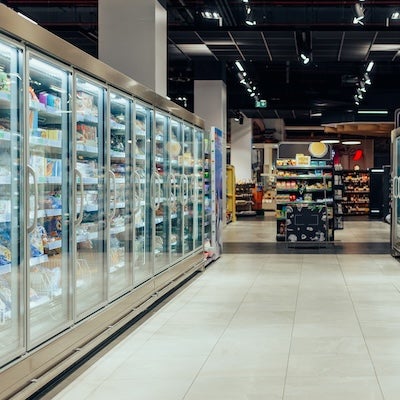
Cooler Costs With Smarter Refrigeration
Because refrigeration equipment runs 24/7, even small changes can produce big results.
- Clean condenser coils regularly.
- Replace worn door seals.
- Keep refrigerators between 35 and 38 degrees.
- Minimize door opening and overloading.
- Upgrade to energy-efficient refrigeration units.
- Install anti-sweat heaters and floating head pressure controls.
- Add plastic strip curtains to walk-in units.
Toolkit in Action
Toolkit in Action
The Maryland Food Bank upgraded its Eastern Shore facility with high-efficiency refrigeration motors and controls, helping to maintain consistent temperatures and reduce spoilage. These improvements, in addition to others, helped cut energy costs by approximately $17,585 annually and saved the organization $32,228 in upfront project costs through utility incentives.

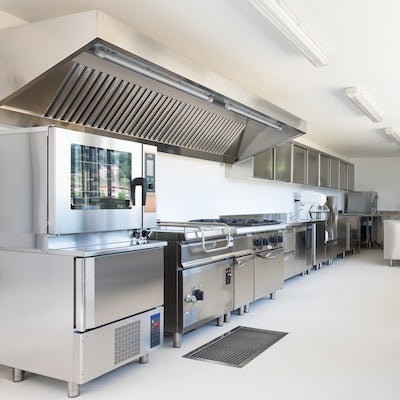
Kitchen Efficiency: Slice Costs, Not Quality
Commercial kitchens can save 10–30% with smart practices and modern equipment—no compromise required.
- Turn off idle equipment.
- Train staff on energy-smart kitchen practices.
- Use pot lids to retain heat and shorten cooking time.
- Upgrade to energy-efficient kitchen appliances.
- Install electric igniters on gas stoves.
- Keep equipment well-maintained for peak performance.
Toolkit in Action
Toolkit in Action
Food service businesses in Maryland have used incentives to upgrade to energy-efficient steam cookers and commercial dishwashers, cutting energy use while keeping upfront costs low. With incentives of up to $125 per steam cooker pan and $1,000 per dishwasher, many kitchens are seeing faster payback and long-term savings.
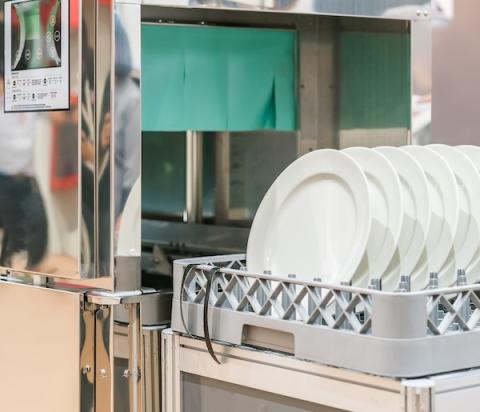
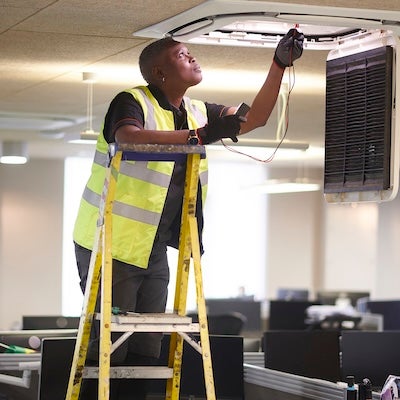
Office Tech Tune-up
Office equipment is often left on for longer than needed, quietly draining energy.
- Set computers to sleep when inactive.
- Power down unused equipment.
- Unplug chargers and personal devices when not in use.
- Decommission unused servers.
- Install advanced power strips to eliminate phantom loads.
- Virtualize servers to reduce hardware.
- Train staff in IT energy management.
- Replace outdated devices with certified energy-efficient models.
Toolkit in Action
Toolkit in Action
Maryland businesses are improving efficiency through Operations and Maintenance training that helps staff optimize equipment performance and reduce energy waste. Use the U.S. Department of Energy’s Low Standby Power Product List to select energy-efficient devices that reduce phantom loads and lower costs.
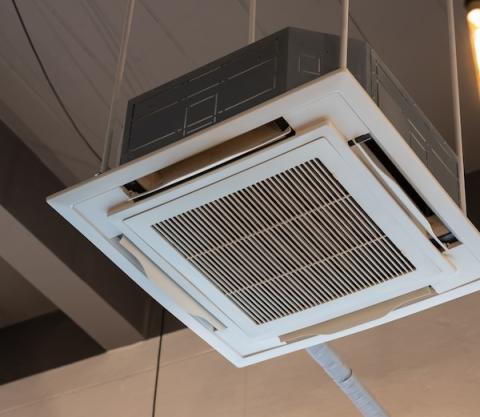
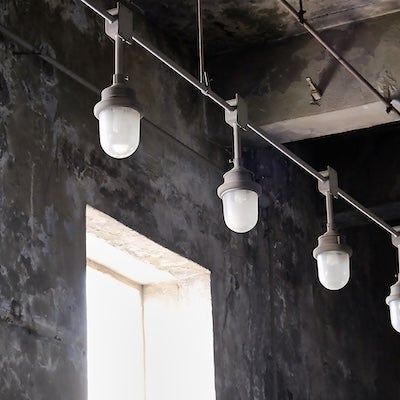
Keep an Eye on Energy Use
You don’t need expensive software to spot waste—attention alone can go a long way.
- Use free energy tracking tools from your utility or state.
- Review monthly utility bills for unexpected spikes.
- Do regular walk-throughs to identify wasted energy.
- Invest in an energy management system.
- Use real-time data to guide operations and future upgrades.
Toolkit in Action
Toolkit in Action
Delmarva Power Sports optimized energy use in its new Salisbury facility by installing a high-efficiency HVAC system and LED lighting throughout the space. These upgrades, supported by energy efficiency incentives, are delivering over 63,000 kWh in annual energy savings.


Claim Your Incentives and Rebates
Don’t leave money on the table—many energy upgrades are more affordable thanks to rebates and financing programs.
- Research rebates, tax credits, and loan programs.
- Sign up for alerts to stay informed about new opportunities.
- Combine incentives with capital upgrades to reduce payback time—some Maryland businesses have seen returns in under three months.
Toolkit in Action
Toolkit in Action
Cecil College took full advantage of energy efficiency incentives to upgrade lighting across its athletic facilities, significantly reducing energy use and operational costs. By leveraging available rebates, the college was able to implement impactful improvements while maximizing budget efficiency.

Bottom Line: Smart Strategies, Real Results
Energy efficiency doesn’t require a massive budget—just a smart plan. With the right mix of Quick Wins and Big Impacts, your business can lower costs, improve comfort, and support a more sustainable future.
Start building your energy-saving toolkit today—and see how far your savings can go.





